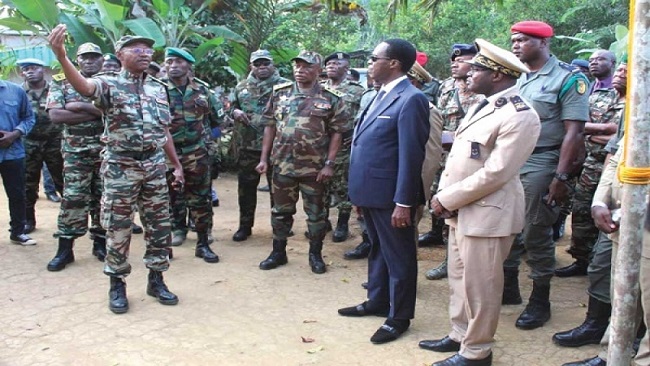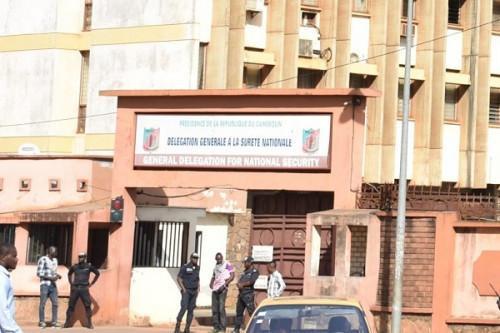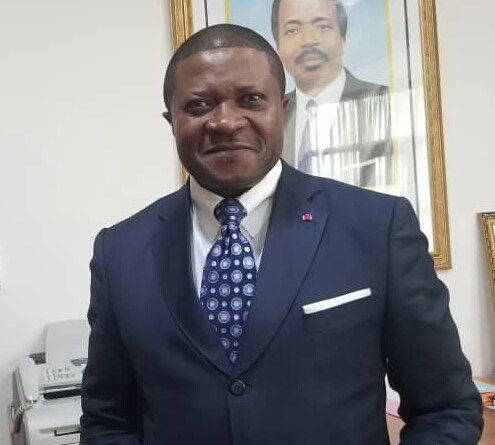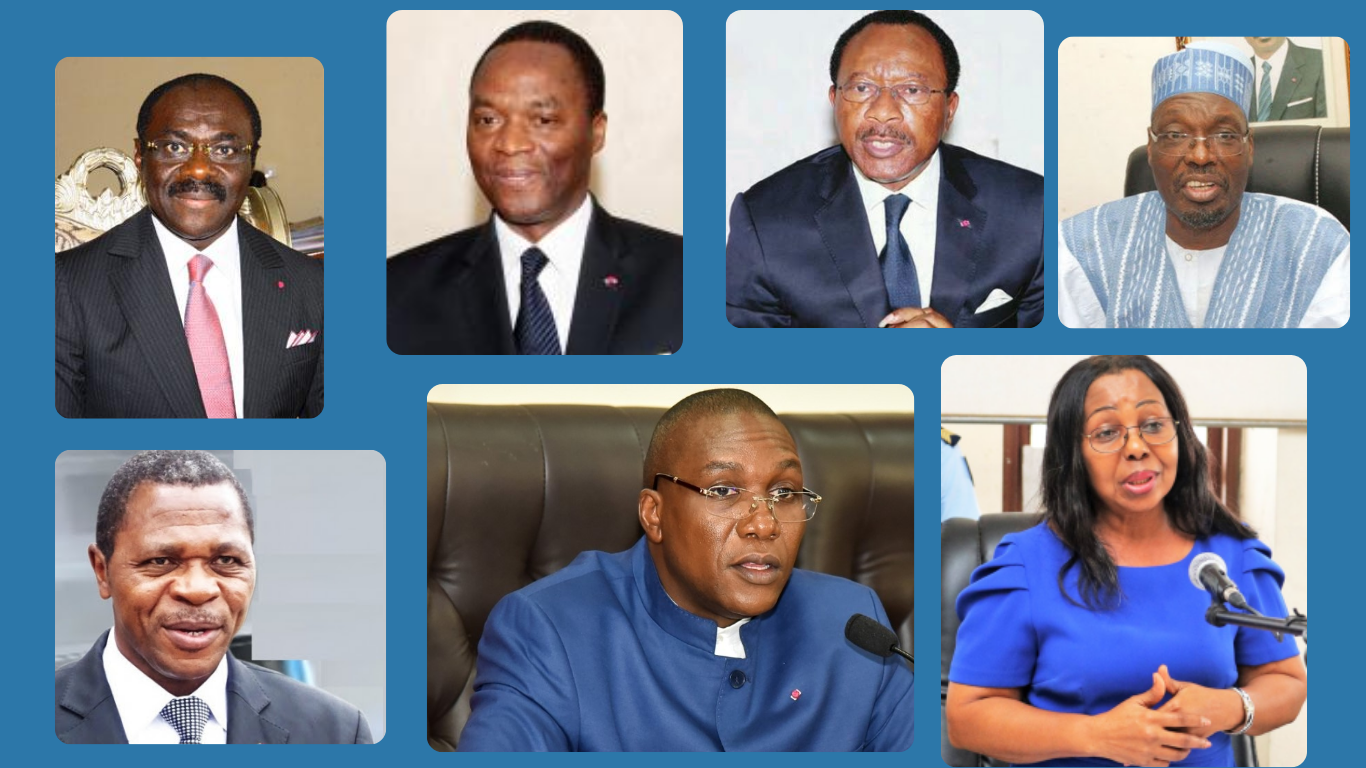Have you ever wondered who makes the big decisions in Cameroon? From education to finance, every sector has a minister in charge.
However, keeping track of all the names and ministries can be challenging.
As of 2025, Cameroon has 32 ministries, each responsible for different areas of the country’s development.
However, the government consists of over 45 ministers and minister delegates, as some ministries have multiple officials managing various responsibilities.
The Prime Minister of Cameroon is Dr. Joseph Dion Ngute, who has been in office since 2019.
Among these leaders, at least 11 female ministers hold key positions, reflecting the country’s efforts toward gender inclusion in leadership.
In this post, we’ll list all the names of ministers and their ministries in Cameroon, helping you stay informed about the country’s leadership.
The 32 Ministries in Cameroon, and their Abbreviation
1. Ministry of Defense (MINDEF)
Minister: Joseph Beti Assomo
This ministry is responsible for protecting the country from both inside and outside threats.
It manages the army, navy, air force, and other defense forces.
The goal is to make sure Cameroon is safe, peaceful, and secure.
The ministry trains soldiers, provides them with equipment, and prepares them to defend the country during war or emergencies.
It also helps in disaster situations, like floods or serious accidents, by sending help quickly.

2. Ministry of Territorial Administration (MINAT)
Minister: Paul Atanga Nji
This ministry acts as a bridge between the central government and local areas such as towns, cities, and villages.
It works closely with governors, divisional officers, and mayors to make sure government policies are applied everywhere.
It helps solve problems like land conflicts, community disputes, and local security issues.
It also manages elections and makes sure they are fair and peaceful.
3. Ministry of Finance (MINFI)
Minister: Louis-Paul Motaze
This ministry manages the country’s money.
It prepares the national budget, collects taxes, and makes sure government money is spent wisely.
It also controls how money is used in schools, hospitals, road construction, and other public services.
The ministry also works with international partners to get financial support and loans when needed.
4. Ministry of External Relations (MINREX)
Minister: Lejeune Mbella Mbella
This ministry handles Cameroon’s communication with other countries.
It builds strong diplomatic relationships to promote peace, trade, and cooperation.
It sends ambassadors to other countries and hosts foreign ambassadors in Cameroon.
The ministry helps Cameroon participate in international organizations like the United Nations and the African Union.
5. Ministry of Justice and Keeper of the Seals (MINJUSTICE)
Minister: Laurent Esso | Minister Delegate: Jean De Dieu Momo
This ministry takes care of the law and legal matters in the country.
It ensures that justice is fair and equal for everyone.
The ministry supervises courts, judges, lawyers, and prisons.
It helps people solve disputes and punishes those who break the law.
It also works to improve laws and protect human rights.

6. Ministry of Economy, Planning and Regional Development (MINEPAT)
Minister: Alamine Ousmane Mey
This ministry helps the country grow economically by planning long-term development projects.
It decides where to build roads, hospitals, schools, and industries.
It also supports regional development to reduce the gap between towns and villages.
The goal is to create jobs and reduce poverty across all parts of the country.
7. Ministry of Public Works (MINTP)
Minister: Emmanuel Nganou Djoumessi
This ministry builds and maintains roads, bridges, government buildings, and other public infrastructure.
It plays an important role in making transportation easier and faster.
Well-built roads help people travel and do business.
The ministry also checks the quality of construction work and ensures safety standards are followed.
8. Ministry of Public Health (MINSANTE)
Minister: Manaouda Malachie
This ministry works to keep people healthy.
It builds hospitals, and health centers, and trains doctors, nurses, and other health professionals.
It also provides vaccines, medicines, and health education.
The ministry helps prevent and control diseases like malaria, cholera, and COVID-19.
It works hard to make healthcare available even in rural areas.
9. Ministry of Transport (MINT)
Minister: Jean Ernest Massena Ngalle Bibehe
This ministry manages all forms of transport — roads, air, sea, and rail.
It ensures vehicles are safe, trains drivers, and checks that transportation companies follow the rules.
It also develops transport projects like bus terminals, airports, and rail lines to improve movement across the country.

10. Ministry of Agriculture and Rural Development (MINADER)
Minister: Gabriel Mbairobe
This ministry supports farmers by providing seeds, fertilizers, farming tools, and training.
It teaches new and better farming methods to increase food production.
It also helps build rural roads and markets so that farmers can sell their crops easily.
The ministry works hard to ensure food security for the whole country.
11. Ministry of Livestock, Fisheries and Animal Industries (MINEPIA)
Minister: Dr. Taïga
This ministry helps people who raise animals like cows, goats, chickens, and who fish for a living.
It provides veterinary services to treat animal diseases and supports fish farmers with training and materials.
It also helps increase meat, milk, eggs, and fish production, which are important sources of food and income.
12. Ministry of Communication (MINCOM)
Minister: René Emmanuel Sadi
This ministry manages information and public communication.
It works with the media like newspapers, TV, and radio to share government news and programs.
It ensures that journalists respect ethics and laws while reporting. The ministry also helps fight fake news and encourages responsible use of social media.
13. Ministry of Labor and Social Security (MINTSS)
Minister: Grégoire Owona
This ministry protects the rights of workers.
It ensures fair wages, safe working conditions, and equal opportunities for everyone.
It also manages pensions, retirement plans, and social insurance to support workers after they stop working or if they face accidents or illness.
14. Ministry of Basic Education (MINEDUB)
Minister: Laurent Serge Etoundi Ngoa
This ministry takes care of nursery and primary schools.
It works to ensure that all children start school at the right age and learn basic skills like reading, writing, and mathematics.
It trains teachers, provides textbooks, and builds classrooms in both towns and villages.
15. Ministry of Secondary Education (MINESEC)
Minister: Pauline Nalova Lyonga
This ministry is responsible for middle and high school education.
It develops school programs, builds schools, trains teachers, and provides equipment.
It also ensures that students have access to good learning environments and can prepare for higher education or jobs.

16. Ministry of Higher Education (MINESUP)
Minister: Jacques Fame Ndongo
This ministry takes care of universities, technical schools, and other advanced learning institutions.
It ensures students receive quality education, supports scientific research, and encourages innovation to solve national problems.
17. Ministry of Youth Affairs and Civic Education (MINJEC)
Minister: Mounouna Foutsou
This ministry helps young people develop skills and become responsible citizens.
It organizes training, workshops, and youth programs.
It also teaches values like respect, honesty, patriotism, and teamwork.
18. Ministry of Water and Energy Resources (MINEE)
Minister: Gaston Eloundou Essomba
This ministry makes sure people have clean water and electricity in their homes, schools, and hospitals.
It builds water supply systems, power lines, and energy projects like hydroelectric dams.
It also encourages saving energy and using renewable energy sources.
19. Ministry of Environment, Nature Protection and Sustainable Development (MINEPDED)
Minister: Hélé Pierre
This ministry works to keep the environment clean and healthy.
It protects forests, animals, rivers, and air.
It also helps prevent pollution and teaches people how to protect nature for future generations.
20. Ministry of Women’s Empowerment and the Family (MINPROFF)
Minister: Marie-Thérèse Abena Ondoa
This ministry works to support women and families.
It helps women get jobs, education, and protection from violence.
It also encourages family unity and helps in raising children with good values.
21. Ministry of Scientific Research and Innovation (MINRESI)
Minister: Professor Madeleine Tchuenté
This ministry supports scientific discoveries and research that can solve real-life problems.
It works with universities and researchers to improve agriculture, health, technology, and the economy through innovation.
22. Ministry of Mines, Industry and Technological Development (MINMIDT)
Minister: Gabriel Dodo Ndoke
This ministry manages natural resources like gold, oil, and minerals.
It helps set up factories and industries to create jobs and build the country’s economy.
It also supports the use of new technology in business and production.
23. Ministry of Posts and Telecommunications (MINPOSTEL)
Minister: Minette Libom Li Likeng
This ministry develops telephone, internet, and postal services.
It works to make digital services faster and cheaper for everyone.
It also supports the growth of the digital economy by encouraging innovation and new tech businesses.

24. Ministry of Arts and Culture (MINAC)
Minister: Pierre Ismaël Bidoung Mkpatt
This ministry protects Cameroon’s traditions, music, dance, crafts, and other forms of culture.
It helps artists and cultural groups and encourages people to take pride in their cultural identity.
25. Ministry of Sports and Physical Education (MINSEP)
Minister: Narcisse Mouelle Kombi
This ministry promotes sports at schools, clubs, and national levels.
It trains athletes, organizes competitions, and supports Cameroon’s participation in events like the Olympics, the Buea Mountain Race, the University Games, and the African Cup of Nations.
26. Ministry of Housing and Urban Development (MINHDU)
Minister: Célestine Ketcha Courtes
This ministry builds affordable homes and plans how cities and towns grow.
It works to ensure clean, organized, and safe living spaces for everyone.
27. Ministry of Employment and Vocational Training (MINEFOP)
Minister: Issa Tchiroma Bakary
This ministry helps people learn work skills through vocational training centers.
It helps young people prepare for jobs in areas like tailoring, mechanics, carpentry, and more.
It also connects people to job opportunities.
28. Ministry of Small and Medium-sized Enterprises, Social Economy and Handicrafts (MINPMEESA)
Minister: Achille Bassilekin III
This ministry supports small businesses and craftsmen.
It helps people start their own businesses by giving training, funding, and advice.
It also promotes locally made products.
29. Ministry of Decentralization and Local Development (MINDDEVEL)
Minister: Georges Elanga Obam
This ministry makes sure that local councils and communities can make decisions for themselves.
It supports local projects and helps bring services closer to the people.
30. Ministry of Public Service and Administrative Reform (MINFOPRA)
Minister: Joseph Le
This ministry manages the recruitment and training of government workers.
It ensures they work honestly and give good service to the public.
31. Ministry of Tourism and Leisure (MINTOUL)
Minister: Bello Bouba Maigari
This ministry promotes Cameroon’s tourist attractions like beaches, mountains, parks, and cultural sites.
It works to bring more tourists and create jobs in the tourism sector.
32. Ministry of Relations with the Assemblies (MINRA)
Minister: Bolvine Wakata
This ministry helps coordinate work between the Government and the Parliament.
It ensures laws are discussed properly and that ministers and lawmakers work together smoothly.




